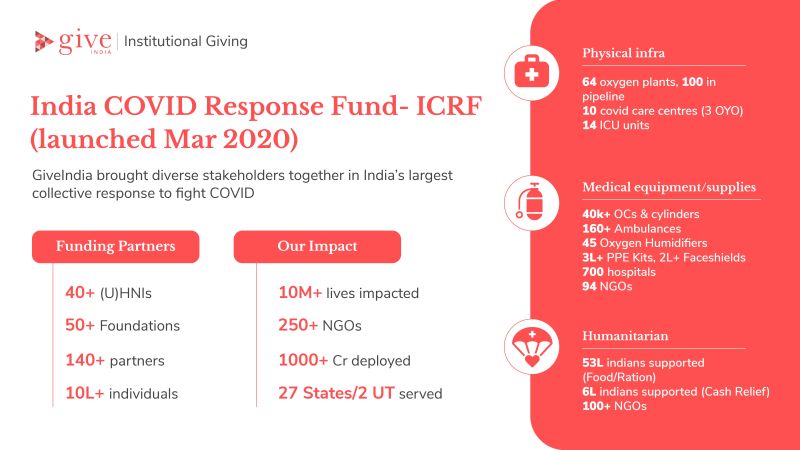Corporate India’s efforts towards relief and rehabilitation during the Covid-19 pandemic shone a spotlight on their CSR contributions, how they came together to collaborate, and the speed and agility in their decision-making. India’s largest online donation platform, GiveIndia pivoted quickly to provide meaningful and swift action and brought creative and collective solutions to drive larger impact.
GiveIndia’s India COVID Response Fund (ICRF) set up during the pandemic to help the country cope with the crisis, went on to become one of the largest giving collectives in India. From ensuring last-mile access to oxygen cylinders to setting up critical care units and from isolation centres to providing medical support to hospitals, and carrying out several humanitarian activities through their partners, GiveIndia worked across the country.
Funds were raised from Ultra High Net worth Individuals (HNIs), foundations, and private citizens over the last 18 months. The platform also saw contributions from 140+ corporate partners. A sum of over INR 1000 crore was raised, which was deployed across 250+ organisations and non-profits on-ground. Effectively, GiveIndia’s Covid relief efforts have impacted over 10 million lives.


